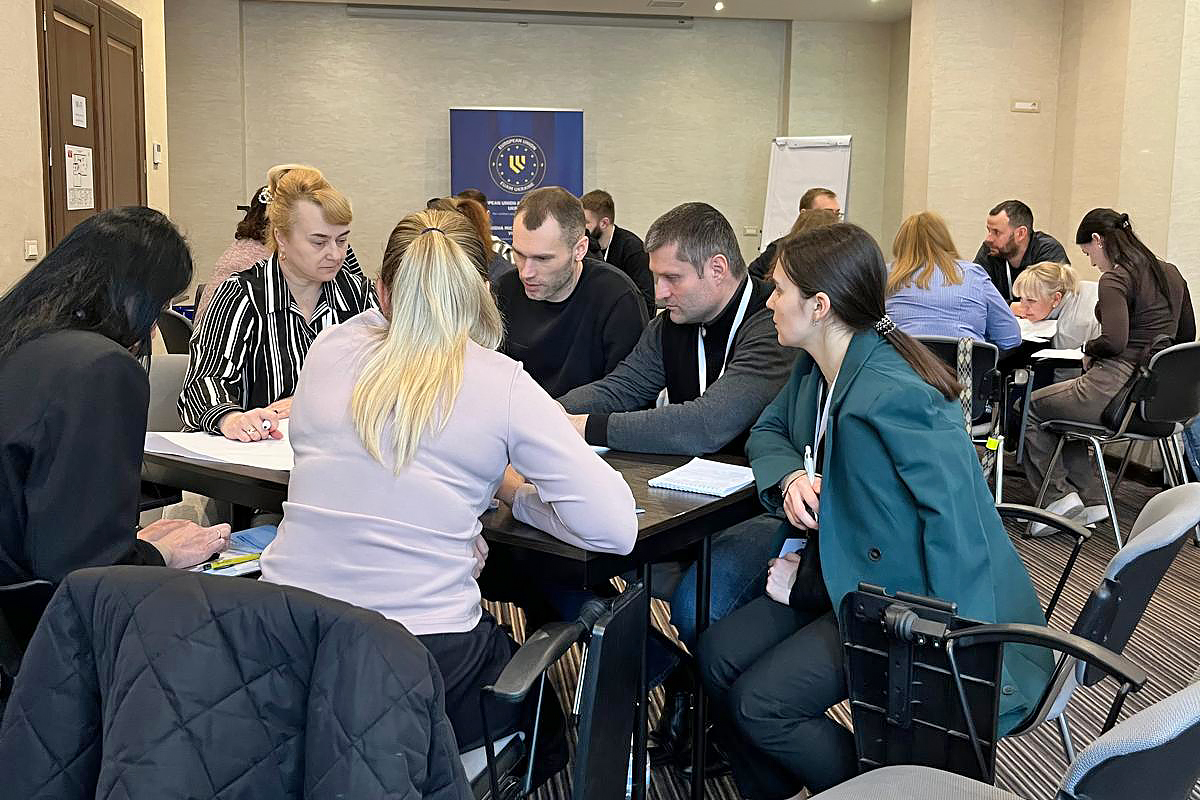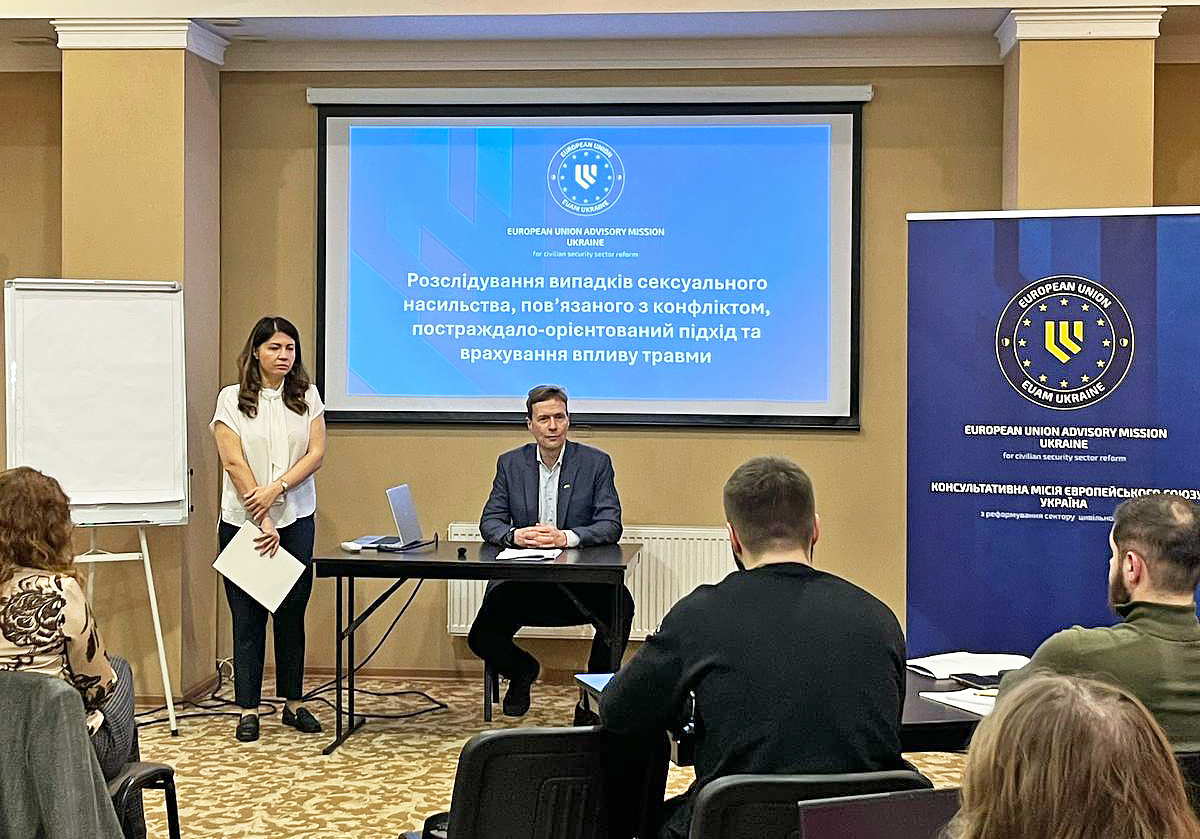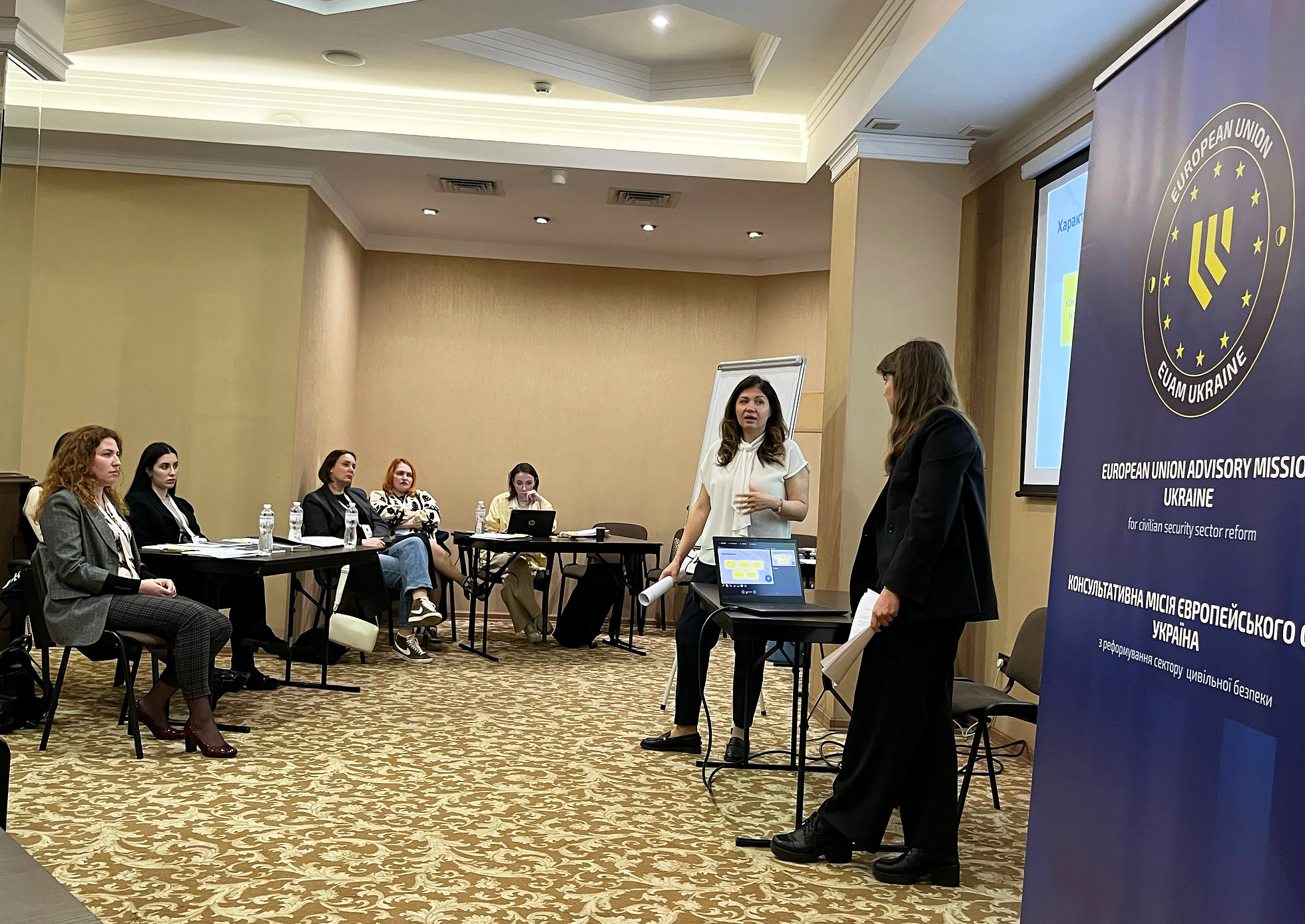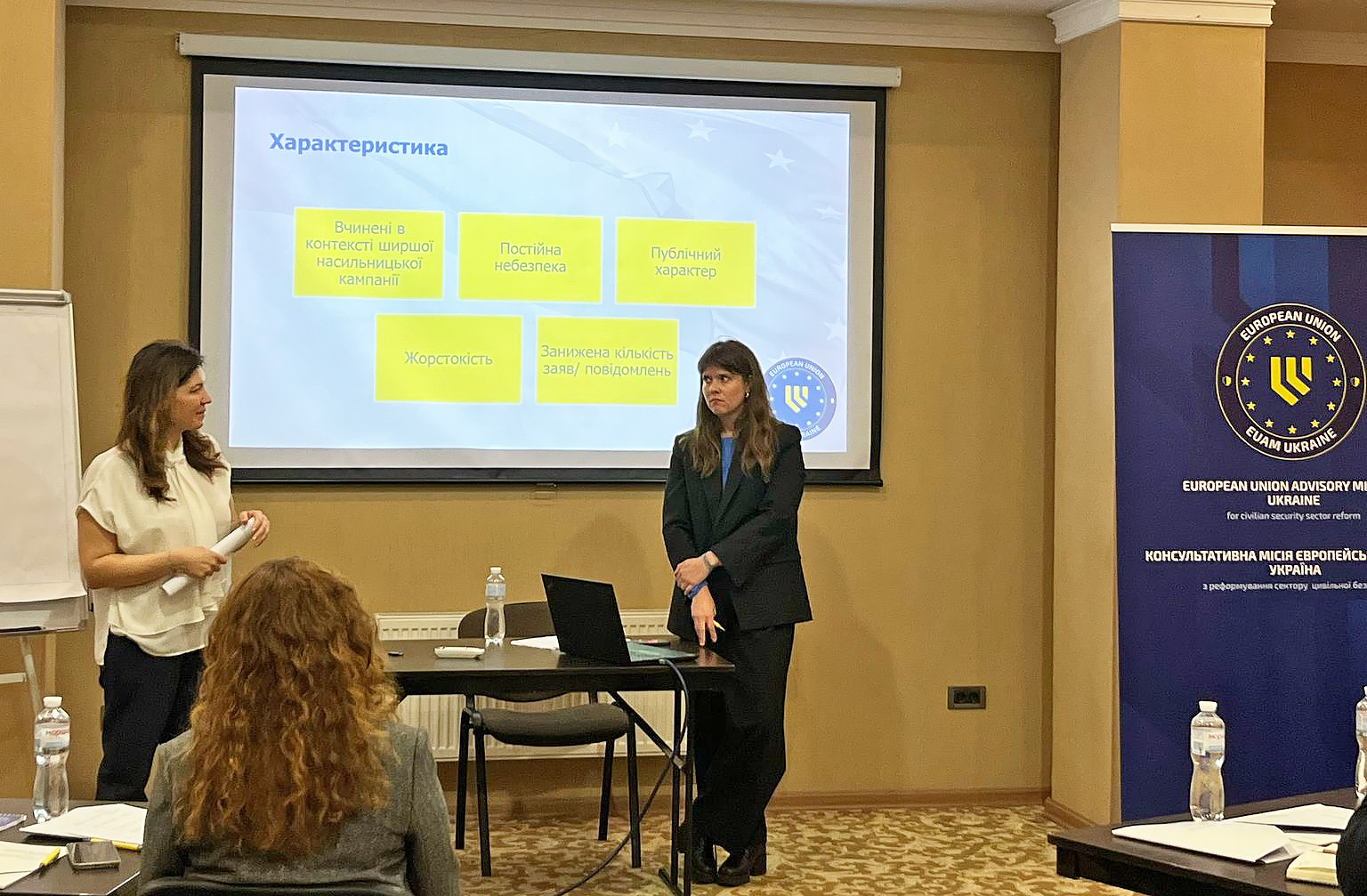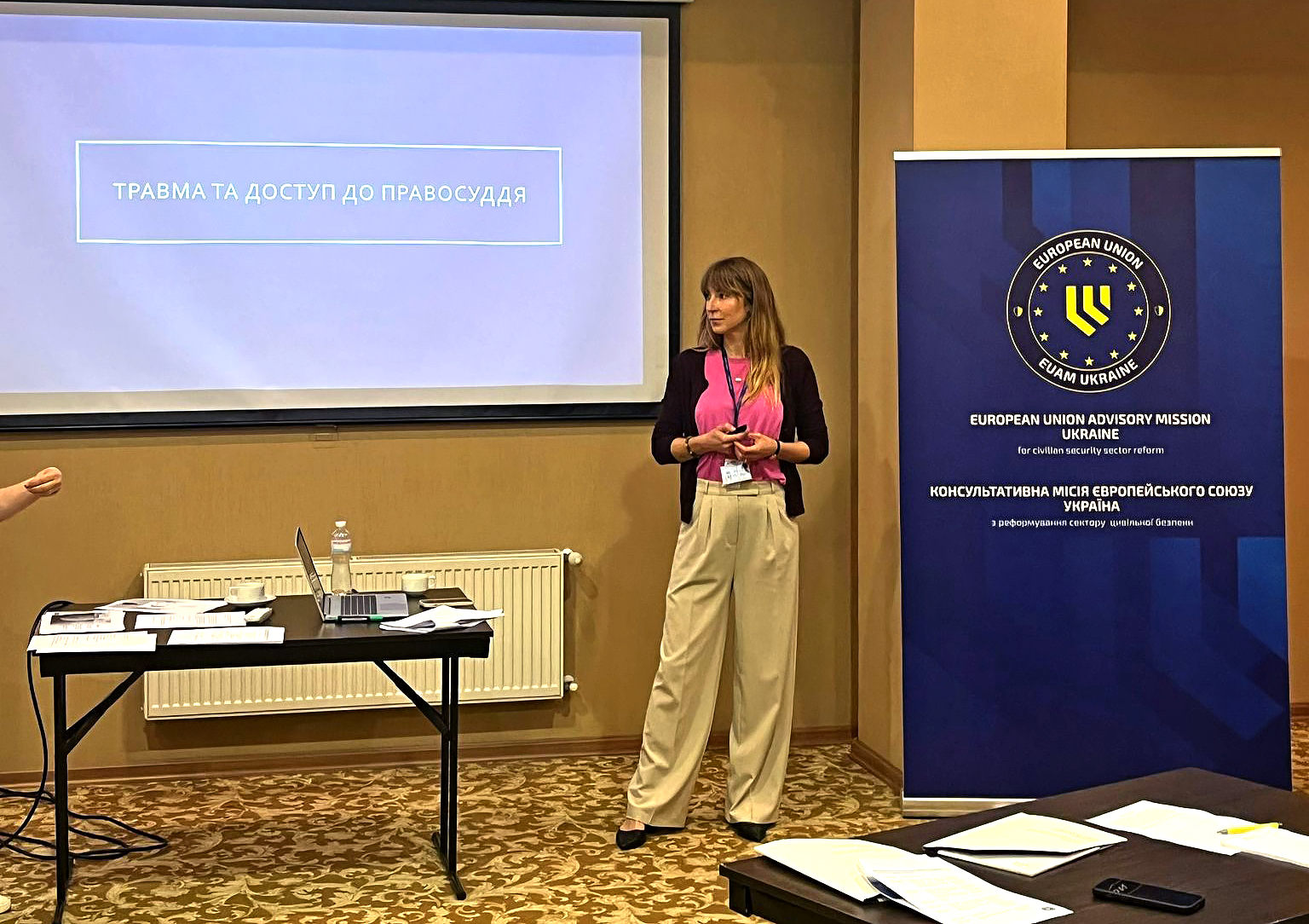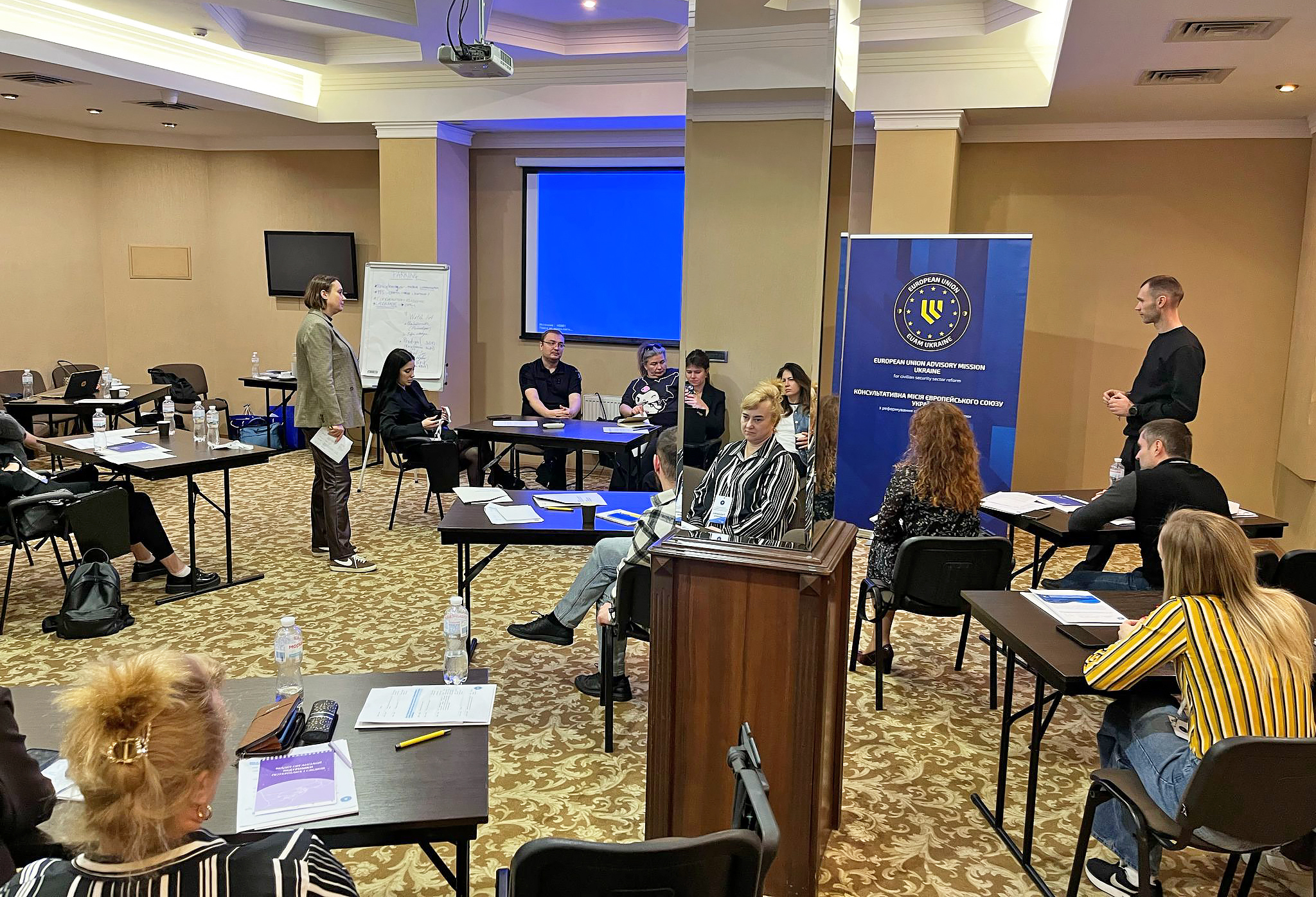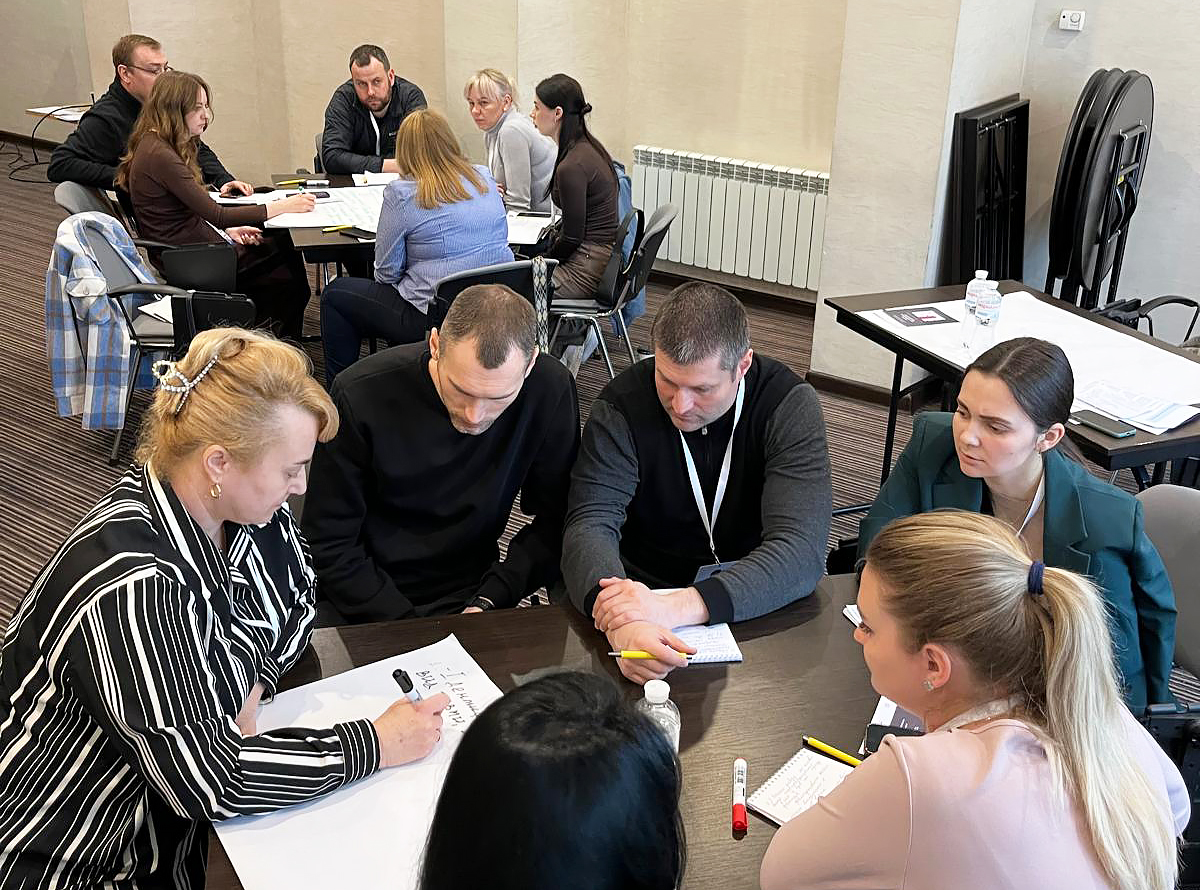EUAM Ukraine Strengthens Survivor-Centred Justice with Four-Day Workshop on CRSV Investigation in Odesa
April 10, 2025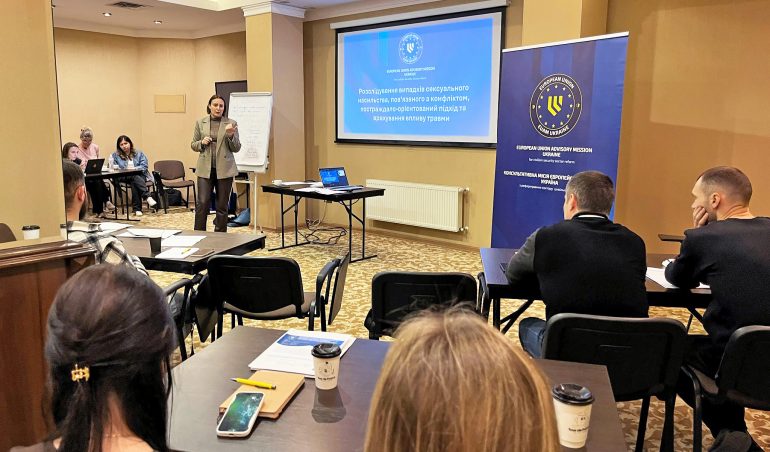
From 1–4 April 2025, the European Union Advisory Mission (EUAM) Ukraine held a four-day workshop in Odesa on trauma-informed and survivor-centred investigation of conflict-related sexual violence (CRSV). The event brought together 17 participants from the Security Service of Ukraine (SBU), the National Police of Ukraine (NPU), regional Prosecutor’s Offices, forensic medical and psychiatric experts from the Ministry of Health, and representatives of the Centre for Coordination of Victims and Witnesses from Kherson. On the final day, four civil society organisations, including two representing survivors of CRSV, joined the discussions.
The training responded to direct requests from Ukrainian partners for more support to regional law enforcement agencies in applying trauma-informed approaches to CRSV investigations and to fostering inter-agency cooperation.
Participants explored the possible impact of trauma on memory and testimony, and how a lack of understanding of trauma by investigators may impede comprehensive access to justice for survivors. The international legal framework governing CRSV framed discussions on survivor-centered considerations around medical evidence in alignment with international standards, and the rights of survivors during criminal proceedings. The workshop demonstrated how the PEACE model of interviewing – Planning and Preparation, Engage and Explain, Account, Closure, and Evaluation – could be applied through a trauma-informed lens, offering a non-coercive, survivor-sensitive methodology widely used in investigative practice.
In addition to expert-led interactive sessions, the workshop featured hands-on scenario-based exercises. These included mock interviews with survivors and witnesses, where investigators stepped into the shoes of the survivor as participants played the roles of investigator, survivor, psychologist, and support person. This practical component allowed investigators, prosecutors and forensic experts to apply trauma-informed techniques in real time, with guidance from a Ukrainian trauma-psychotherapist trained by the International Criminal Court. The exercises encouraged critical reflection on common challenges and fostered peer learning across institutions.
“This workshop was built around the recognition that a survivor-centred approach requires a joint, holistic effort across law enforcement, forensic experts, and civil society,” said Sanna Kaskeala, Rule of Law Adviser at EUAM Field Office Odesa. “Our goal was not only to strengthen coordination in this regard, but to deepen participants’ understanding of how trauma can affect the memory and behaviour of a person, and to support our Ukrainian partners in developing practical trauma-informed skills for engaging with survivors and witnesses. An improved appreciation of trauma can law enforcement to conduct more effective and survivor-centred investigations of CRSV, increasing chances for successful prosecution and accountability for crimes of CRSV.”
Pauline Brosch, Senior Advisor on Investigation of Conflict-Related Sexual Violence from EUAM’s International Crimes Component added, “the discussions with regional law enforcement agencies has been useful in understanding the specific challenges to CRSV investigations in occupied and recently liberated territories in the south, and we look forward to addressing these further in the upcoming workshop on case-building next month.”
Participants welcomed the open exchange between agencies and sectors, noting the importance of multi-stakeholder collaboration in improving CRSV response. One practical outcome of the workshop was the immediate adoption of an updated forensic documentation form in one region, after participants were made aware of its recent revision in line with international standards.
EUAM Ukraine remains committed to supporting Ukraine’s criminal justice system in delivering survivor-centred, trauma-informed responses to CRSV, ensuring investigations uphold the dignity of survivors and strengthen accountability for international crimes.


